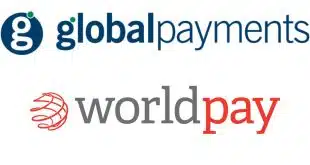With a major new—and somewhat controversial—e-commerce standard now entering a 45-day comment phase, the payments industry is likely to have at least some “commercial applications” ready by early spring, the top executive in charge of Visa Inc.’s implementation tells Digital Transactions News.
The specification, known as Secure Remote Commerce, has emerged from work by EMVCo, the standards body managed by six global card networks, and is aimed at both simplifying consumer checkouts online and at tightening transaction security with tokenization. After comments have been considered and perhaps implemented, EMVCo will publish the final spec, probably early in 2019, says TS Anil, Visa’s global head for payment products and platforms.
“It’s far along, a lot of good thinking has gone into it,” he says.

For its part, Visa is looking for the new spec to spawn applications that will help drive up transaction volume for e-commerce merchants and hence for the network. “Things that address both security and user experience tend to scale,” Anil says. “Having this results in more digital transactions–hopefully the pie grows.”
News about the specification emerged last spring with reports that the major card networks were working on a so-called common buy button that would allow online buyers to check out more quickly and easily, in part because their card credentials will have been tokenized for ready recall by acquirers and issuers. Tokenization, which masks actual credentials with random character strings, had already been introduced by EMVCo for chip card transactions and other uses, such as mobile wallets and card-on-file transactions.
While the new spec is expected to smooth out online checkouts, some merchant groups have been leery of what they see as a closed process at EMVCo, which is owned and run by American Express Co., Discover Financial Services, Japan’s JCB, Mastercard Inc., and China UnionPay, as well as Visa.
Cognizant of those concerns, Anil argues merchants’ viewpoints will be considered as the final SRC spec takes shape. “Merchants are an incredibly key part of the ecosystem,” he says. “None of this works if it’s not in the merchants’ interests. The intent has always been for this to be an open set of standards.”
Indeed, he says, Visa is already reaching out to at least some merchants to make sure the spec will work for them. “Visa is contacting merchants to start the process of substantiating this,” he says.
Visa on Tuesday issued a release “reiterating support” for SRC and announcing that Visa Checkout, its online wallet, will support “participating card brands,” including Mastercard and AmEx, as well its own. Visa Checkout claims more than 40 million consumer accounts and works with 350,000 merchants and 1,600 financial institutions in 26 regions around the world, the company said.
Simultaneously with Visa’s announcement Tuesday, AmEx issued a statement that it “will be enabling American Express cards for use in SRC checkout solutions to be offered by Visa and by Mastercard in mid-2019.”
At least initially, Anil says Visa is not looking at SRC as a fee opportunity. “Having said that, there will be opportunities for gateways” to establish pricing, he added. Gateways are processors that connect merchants to payment providers.
Nor is SRC, which is following on such EMVCo standards as EMV chip and tokenization, likely to be the final step in making commerce safe and fast, he said. “I’d be surprised if this is the end of the road for payment and commerce standards,” he said. Invoking a famous quotation by British prime minister Winston Churchill, who in the early 1940s was referring to signs of progress in the war against Nazi Germany, Anil says SRC “is not the end … is not even the beginning of the end, but this is the end of the beginning. The real work is really getting started.”





